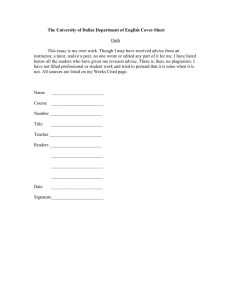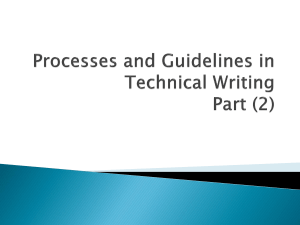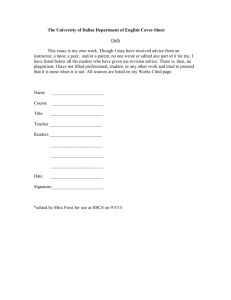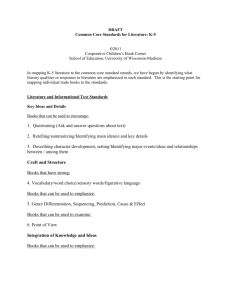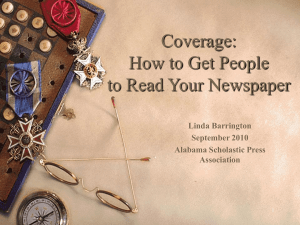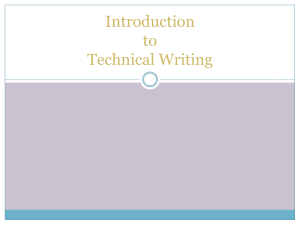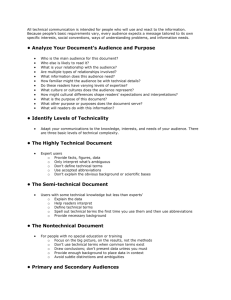Chapter 16: Sports Reporting
advertisement
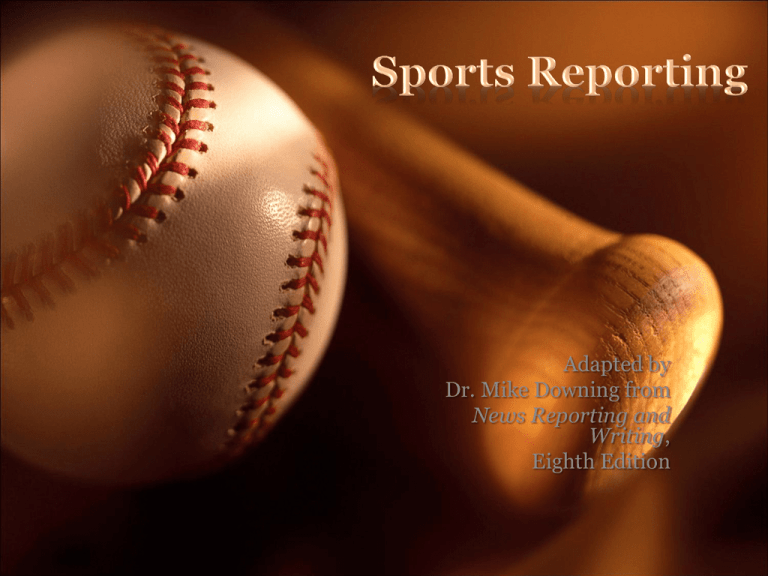
Adapted by Dr. Mike Downing from News Reporting and Writing, Eighth Edition Be prepared Read for background (back issues; Internet) Talk to sources; establish a relationship Talk to others who have covered your beat Understand your editor’s expectations Learn the law as it relates to your beat (e.g. drug testing) • Learn about governing bodies (NFLPA, NCAA, etc.) • • • • • • • Like a news story, a good sports story should reveal who, what, when, where, why, and how: • Who won the game? • What was the score? • When did the game occur? • Where did they play? • Why did these teams meet (Conference game? Division game? Playoff game?) • How was the game won or lost? • Like a good features story, a good sports story goes beyond the 5Ws and H and considers the “people” angle. • Coach Smith won his 100th football game last Sunday. • Pitching on only two days rest, Gabriel Rivera pitched a one-hitter yesterday. • The East High School water polo team has made the playoffs for the first time in five years. • Despite losing their top scorer, Parkland won its third game in a row. • Players • Coaches • Administrators • Trainers • Intelligent Fans • Equipment Managers • Alumni • Former Players • Maintain your distance from the people you cover. • Keep readers in mind. • Read your email and answer questions that the readers have. • Keep your eyes and ears open. • The final score is only part of the sports story… • Readers want description, so they can re-live the event (or learn about parts of the game they might have missed). • Readers want analysis: Why did the team lose? What changes are being considered? • Questions?

